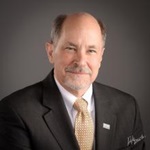People by nature tend to be bargain hunters. We search for discount coupons and rebates, compare prices, and can go to extraordinary lengths to pay as little as possible for what we want. We generally have an aversion to higher taxes, often expecting great public services without wanting to contribute more for them. Given all that, the results of the first National Educational Poll of Voter Priorities for Public Schools, commissioned by the National School Boards Action Center (NSBAC) and released at NSBA’s Advocacy Institute in February, provided very pleasant news, indeed.
The poll of 1,000 likely voters tapped a rich vein of support for public schools, across all demographic groups. Those surveyed overwhelmingly favor higher funding levels for schools. Nearly three-quarters said that inadequate resources for public education is a problem. Remarkably, almost two-thirds of respondents believe funding for public schools should be increased, and, of those, more than eight of 10 indicated they would support making that happen, even if it required them to pay more in taxes.
We don’t often hear people say they would be willing to increase their own taxes, but the message here was unmistakable: Public schools are a priority, and they need to be adequately supported financially.
That’s not all. The poll made it very clear that voters expect their elected officials to back public schools and to oppose efforts to divert money from them. More than 60 percent of those surveyed said they would be less likely to vote for an elected official who supported taking funds away from public schools to give to private schools. This underscores the strong public opposition to tuition vouchers and similar schemes that would direct tax dollars to private schools. That the poll was released one day before President Trump delivered his State of the Union Address, which called again for the enactment of so-called “education freedom scholarships” (a form of vouchers), was a serendipitous reminder that such proposals run directly counter to what the public wants.
Some other important takeaways from the NSBAC poll:
- While views of charter schools were mixed, respondents were adamant that oversight of them should be placed with school boards.
- Teachers, local schools, and school boards are all viewed positively.
- More than eight of 10 voters say the lack of high-quality teachers is an important issue to address.
- Fully 92 percent of respondents say school safety is a high priority.
- More than three-quarters of voters want schools to teach real-world skills—a resounding endorsement of NSBA’s “LifeReady” initiative with the business community to ensure all students graduating high school are prepared for the workplace, whether they go to college or not.
It is important to note that the NSBAC poll was not an informal sampling of public opinion. It was conducted by two nationally known and highly respected research firms with extensive experience—one typically representing Republicans, the other usually retained by Democrats. They worked together in a bipartisan manner to survey likely 2020 voters, including an oversampling of African Americans, Latinx, parents of school-age children, and battleground state voters, with a margin of error of +/- 3.1 percent. In other words, it is a reliable measure of voters’ opinions. The detailed results can be viewed at www.nsbac.org.
When the public says it highly values something, is willing to pay more for it, wants it to continue to improve, and opposes efforts to divert funding from it, elected officials should take note. Public schools are the most important asset of any community. Funding for them is not an expense; it is an investment in children and in the future of our country.


Share this content